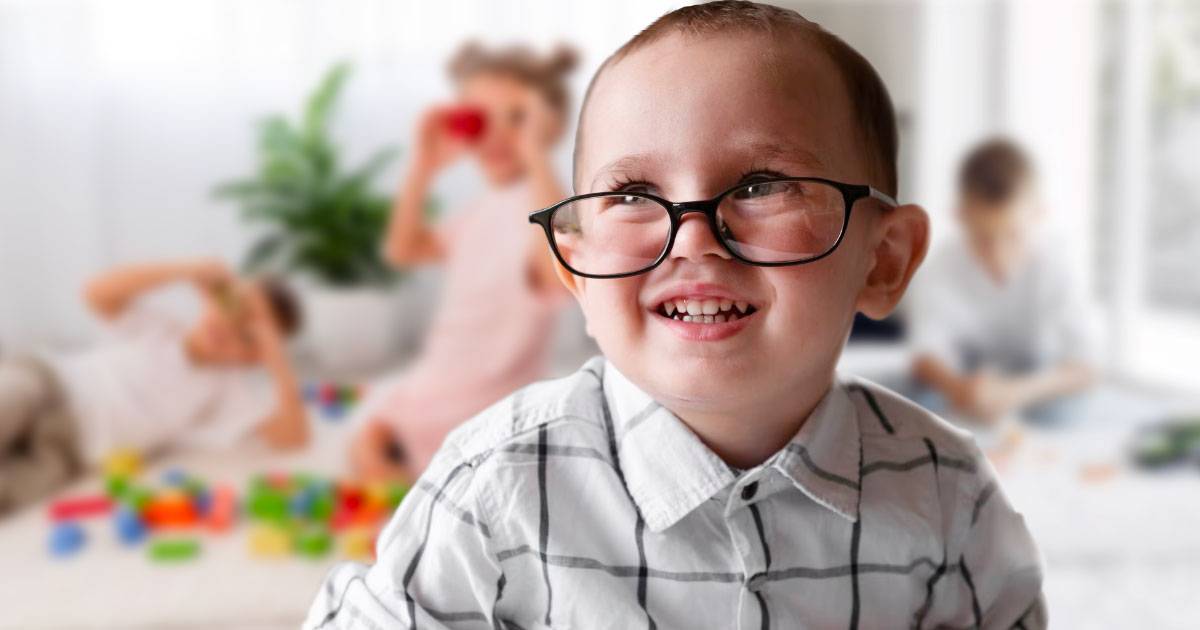Signs Your Toddler Needs Glasses: Early Detection and Care

Unnoticed issues with your child’s eyesight could affect their performance in various settings, including school and daily activities. Thus, having a grasp of eye health is crucial to identify the many potential signs a toddler needs glasses.
It’s also a good idea to arrange regular eye check-ups for your child at ages 6-12 months, 3-5 years, and then annually starting from their first year of school. Integrating these eye exams into your child’s healthcare routine enables doctors to catch any vision issues early on and address them promptly.
How to tell if a toddler needs glasses – Signs to be aware of
Be on the lookout for the subsequent signs your toddler needs glasses:
Squinting
When a child struggles with their vision, they might squint in an attempt to see better. Squinting can briefly help them see an object more clearly. These actions could point to different vision problems such as refractive errors (which impact focusing on images).
Tilting head or covering one eye
If your child is instinctively covering one eye or tilting their head as they try to fine-tune their vision’s clarity, it might be one of the many signs your child needs glasses. These actions could potentially signal that their eyes aren’t aligning as they should or that your child might be dealing with amblyopia, often referred to as lazy eye. This particular condition, characterized by one eye not functioning as effectively as the other, stands as one of the prevalent eye concerns affecting children.
Rubbing their eyes
Should you notice your child frequently rubbing their eyes, it’s worth considering the range of potential eye-related concerns that could be at play. These could encompass issues like allergic conjunctivitis, where the eyes react to allergens, as well as broader vision problems. If your child’s eye-rubbing tendencies seem linked to their vision, it’s often linked to strains or tiredness in the eyes.
Prolonged or persistent rubbing may signal that their eyes are experiencing discomfort due to extended periods of reading, screen time, or other visually demanding tasks. It’s essential to pay heed to such signs and consider consulting an eye care professional to ensure your child’s eye health and comfort.
Headaches and eye pain
If your child frequently voices complaints about headaches or experiences discomfort in their eyes, these could serve as significant indicators pointing towards potential eyestrain. This occurs because their eyes are exerting extra effort to bring into focus the objects that appear blurred in their field of view.
The strain might stem from extended periods of reading, using digital devices, or other activities that demand prolonged visual concentration. This strain can lead to feelings of discomfort, which, if left unattended, could potentially escalate into more substantial eye-related issues. As such, acknowledging these signals and addressing them appropriately is vital to safeguarding your child’s eye comfort and overall well-being.
Sitting too close to the TV or bringing devices close to their faces
If you find your child consistently sitting exceptionally close to the television, bringing hand-held devices unusually close to their eyes, or tending to lower their head while engrossed in reading, these actions could potentially indicate some concerns with their vision.
It’s important to note that individuals dealing with myopia, often referred to as nearsightedness, typically exhibit clear vision when objects are nearby but might struggle with distant vision. This phenomenon occurs because drawing an object closer tends to magnify and clarify the corresponding image, compensating for the inherent visual challenges. This behavior might be an unconscious attempt to bring things into clearer focus, suggesting the need for a closer look at their vision health. Regular eye check-ups and professional guidance can help ensure your child’s visual comfort and well-being.
Can’t concentrate in school
In the case of school-age kids facing vision troubles, they might show different signs, including:
- Trouble focusing
- Shorter attention spans
- Avoidance of reading or close-up tasks
- Struggles with understanding or working efficiently
Occasionally, children with unnoticed vision problems might be seen as easily distracted or extra active. Interestingly, untreated vision issues could lead to them being associated with attention deficit hyperactivity disorder (ADHD) or behavioral problems, when all they might actually require are eyeglasses.
Vision screenings for your child is necessary
Typically, vision checks are carried out either by your child’s doctor or at school. If your child doesn’t pass such a check, the most crucial step is to arrange an appointment with an eye care specialist for a thorough eye examination.
During this comprehensive exam, the clarity and sharpness of your child’s vision—known as visual acuity—are evaluated. Additionally, the exam might look into:
- Strabismus (crossed eyes) and how their eyes align
- Depth perception
- The overall well-being of both the internal and external parts of the eyes
- Signs of more severe eye conditions
If your child already wears glasses, it’s vital to have their eyes examined by a specialist every year. This ensures their vision is properly maintained and any changes are addressed promptly.
Be wary of the various signs your toddler needs glasses for early detection
Ensure your child’s vision and well-being by staying vigilant for signs they might need glasses. From squinting and eye-rubbing to headaches and struggles in school, these cues can’t be overlooked. Make regular eye check-ups a priority, with examinations at crucial stages of development and annual visits once school begins. Don’t delay—schedule a comprehensive eye exam with a specialist if any signs your child needs glasses arise. By taking action now, you’re securing a brighter future for your child’s visual comfort and success.
